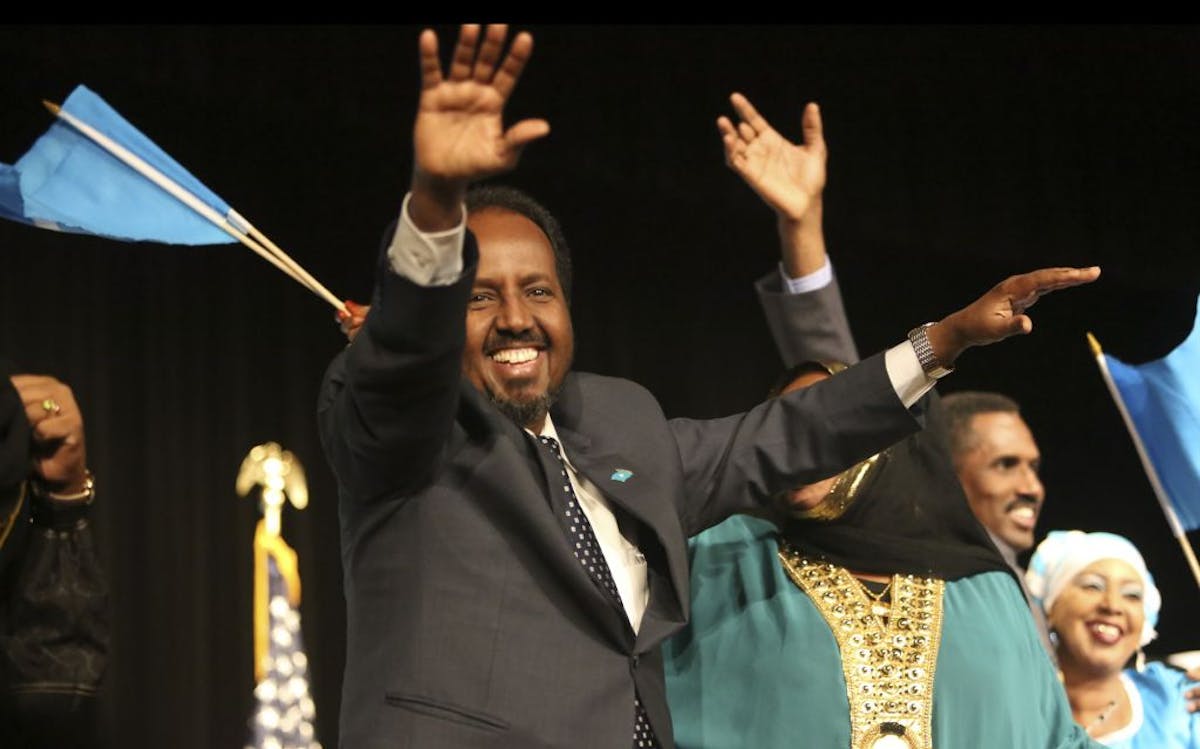On Sept. 10, 2012, a presidential election was held in Mogadishu. Hassan Sheikh Mohamud was elected as Somalia's new leader. It was the first time in more than 20 years that a president had been chosen on Somali soil.
Somalia opened a new chapter in its history with the election of President Hassan. His government has existed for only a few months, but it seems the transition period is completed. An indication of the government's permanent status is its formal recognition by the United States. Other nations are sure to follow.
In October 2009, former President Sharif Sheikh Ahmed visited New York for the annual United Nations summit, then traveled to Minneapolis, where he talked to the local Somali community and received a warm welcome. I spent several hours asking people what his government had achieved so far. Unfortunately, no one knew what I was talking about.
Under Sharif, fighting had increased in the country; the government had lost most of the country to Hizbul Islam and Al Shabaab; there had been an increase in death and destruction, and ever more people had been displaced. The people of Somalia needed more aid than ever before.
With this new president, it is different. Hassan went to Washington to meet President Obama, Secretary of State Hillary Clinton and the heads of some international financial institutions to gain both diplomatic recognition and financial support. He came to the Minneapolis Convention Center on Jan. 18 to talk to the local Somali community. Another warm welcome was put in place.
This time, I did not have the opportunity see the president talk to the local community. I did, however, attend a breakfast where he spoke to a group of elite members of the local Somali community.
This time, seeing the president was not my main focus. I wanted to ask questions of the elite groups, including: "What does formal recognition from the U.S. government mean for the Somali government and for the Somali people?"
I got different answers from different people.
There is no question that U.S. recognition will give Somalia an opportunity to open many doors. But my main concern is: Do we really understand what this means for Somalis? I have doubts.
Please, as Somalis, let us understand the world in which we live, and be realistic about the actual situation in our country, and build the nation from a realistic base, not dreams.
-----------------
Mohamed Sh. Hussein lives in Minneapolis.
Lab-grown beef is red meat for the conservative base


